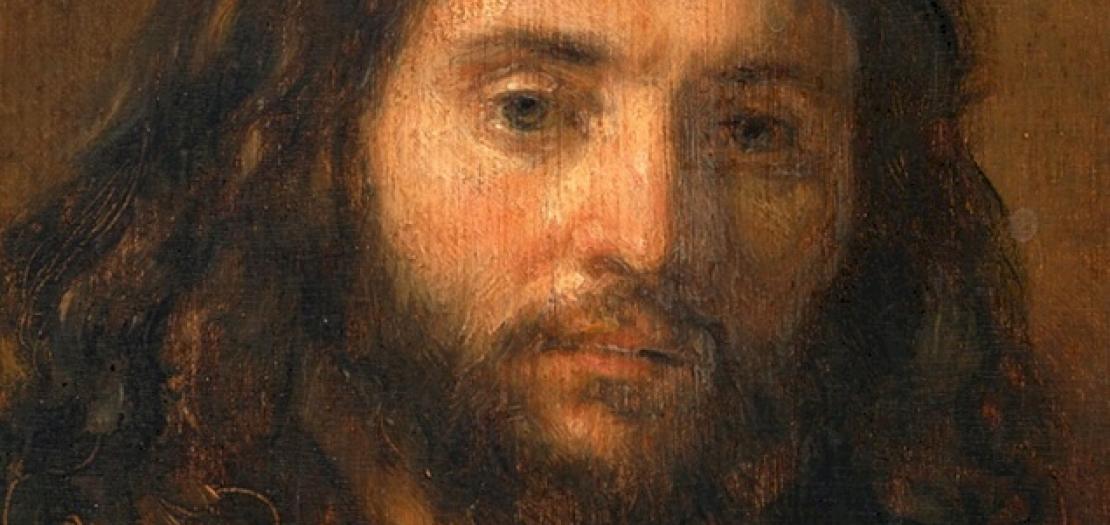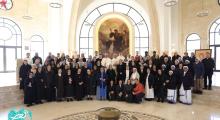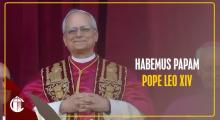Issued by the Catholic Center for Studies and Media - Jordan. Editor-in-chief Fr. Rif'at Bader - موقع أبونا abouna.org

Following is the text of the meditation by Latin Patriarch of Jerusalem His Beatitude Pierbattista Pizzaballa for the sixth Sunday of Easter, Year A, May 14, 2023:
“If you love me” (John 14:15)
The Gospel passage of this Sixth Sunday of Easter opens with this affirmation. (14:15-21)
The rest of the passage seems to depend on this initial hypothetical proposition, it all comes down to this, whether we love the Lord Jesus or not.
Loving Him is the fundamental premise, the door that opens to all the consequences that the successive verses describe.
The first is that if we love Him, we keep His commandments.
This means that obedience to the Law, which was impossible for the person marked by sin, is now possible for redeemed humanity, for the one who lives in love. Man, alone, by his power, is incapable of obeying: the entire history of Israel is there to prove it, because sin corrodes trust, and therefore relationships. The one marked by sin asks a sign and puts the Lord to the test, and eventually obeys his fears, his will to save himself alone. For those who love, life is another thing, and a sign that one is in love is precisely obedience, that is, trusting the word of another, following it.
The second is that if we love Him, Jesus will pray to the Father, and the Father will give us another Paraclete, who remains with us always. (John 14:16) Paraclete is a juridical term and refers to that figure who, in legal proceedings, stood next to the accused, and carried out his defense, against everyone. For those who love the Lord, there is, therefore, no longer condemnation of any kind. The accuser, indeed, according to John, is the devil, the one who puts our sin at the center, the one who treats us as sinners, as bankrupt. The Paraclete reminds us of what enables us to live, reminds us of the One who crossed over into death for our sins, the One who died to forgive us.
We are no longer only sinners, and we are no longer even orphans. (John 14:18)
This is the third consequence that issues to those who love the Lord Jesus. We are people to whom the Lord continually returns, and returns in a new way, offering us His very life, His very relationship with the Father.
This relationship between Jesus and the Father remains invisible for those who do not believe and for whoever does not love: Jesus says that His Passover will open a new time, in which the world will no longer see Him (Jn 14:19). Instead, believers will see Him in a new way, they will recognize in a new way, they will recognize that the Father is in Jesus and Jesus in the Father.
This will happen because the disciples will share the very life in which one lives in the other. After all, those who love, participate in this relationship, which is a relationship of love.
Jesus makes it clear in verse 20: “On that day you will realize that I am in my Father and you are in me and I in you”: it is no longer just a matter of recognizing that Jesus lives in the Father and the Father in Jesus. There is something new, something great: “… and you in me and I in you.”
That is, that same life that the Father and the Son share in the one Spirit is now given to believers, who live by that very life, who have this life within them.
“If you love me”, Jesus said at the beginning of the passage.
If we live in love, that is the horizon that is before you, a horizon of authentic Life, capable of generating new relationships.
The Church is that space of love, where the Life of the Father circulates, that lives in Christ, that lives in us.
+Pierbattista







